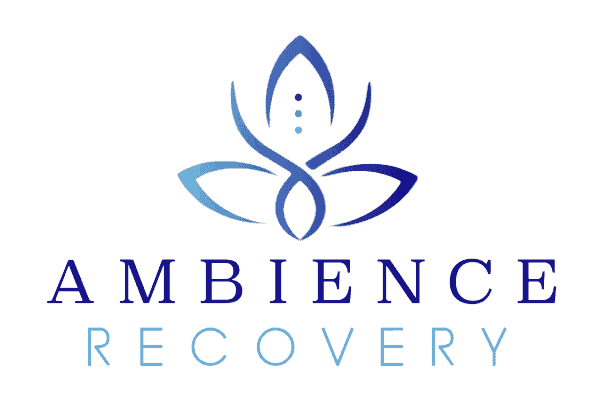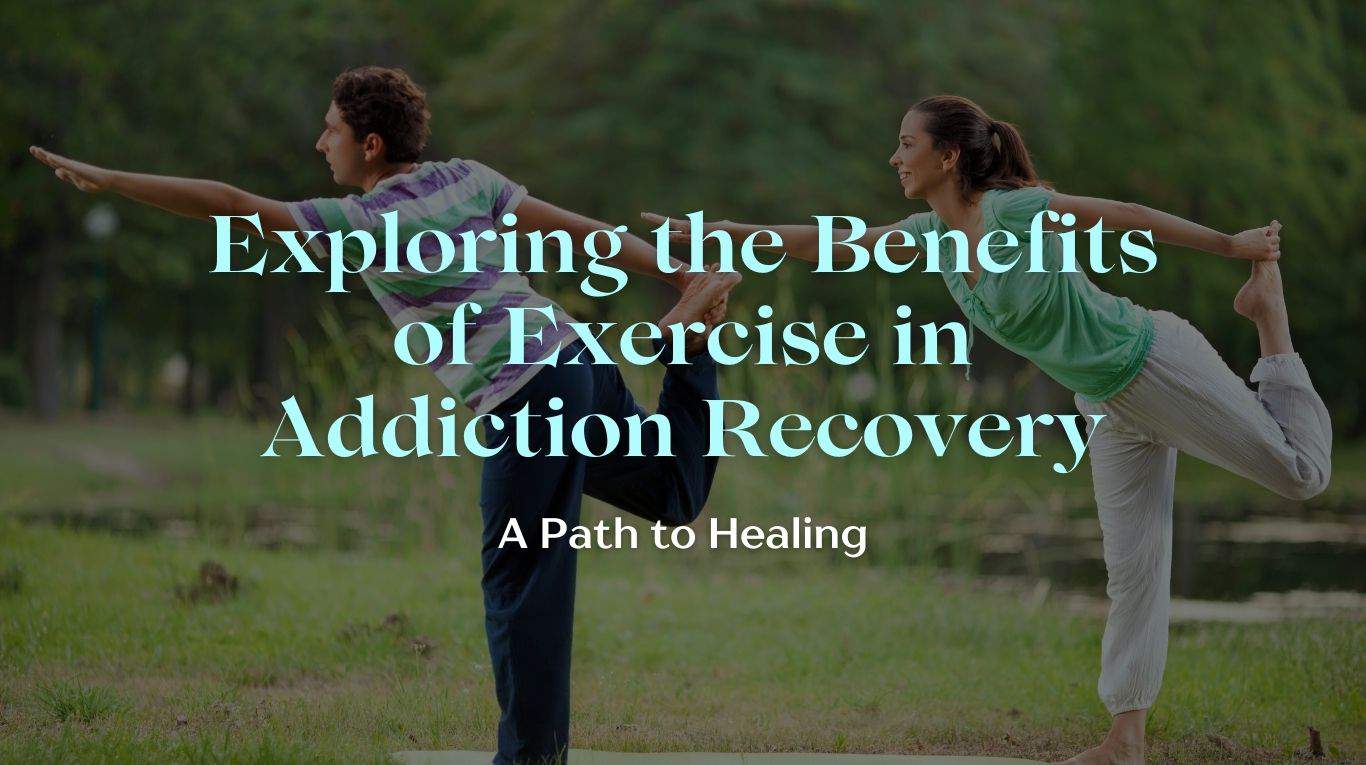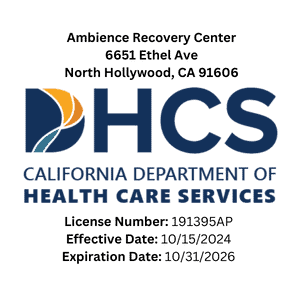January is often seen as the top time for signing up at gyms and buying fitness gear, like Peloton. However, not many realize its importance for those battling addiction1. A key study in Front Psychiatry shows that exercise is crucial for more than just staying fit. It’s a vital tool in fighting drug and alcohol addiction1. Recovery programs, such as those at the New England Recovery Center, incorporate health and wellness into their approach, recognizing the link between fitness and recovery1. The power of exercise in this journey surprises many. For example, running for just ten minutes can boost blood flow and brain functioning, key for those overcoming addiction1.
The CDC highlights how physical activity quickly improves well-being1. Regular exercise changes the brain’s reward pathways, damaged by addiction. It triggers vital neurotransmitters, aiding in neuroplasticity, which helps in making better choices and controlling impulses2. Also, it’s a strong tool against depression and anxiety, conditions often found alongside addiction1.
Key Takeaways
- January’s fitness surge hints at a broader application for exercise in aiding addiction treatment1.
- Research suggests that exercise can be as beneficial as traditional therapies in battling addiction1.
- Incorporating fitness into recovery programs is now a standard in facilities like the New England Recovery Center1.
- Short bursts of aerobic activity can produce immediate cognitive benefits, essential in addiction therapy1.
- Exercise’s impact on mental health is profound, offering a natural defense against anxiety and depression1.
- Improving brain function and reducing cravings, exercise stimulates neurotransmitter release and supports neuroplasticity2.
Introducing Exercise as a Key Component in Addiction Treatment
Fitness is more than just an activity when it comes to recovery. It’s key to reshaping life during and after addiction. The changes exercise brings benefit both the body and mind. It helps people create new habits that support a life without addiction.
How Exercise Creates a Foundation for Recovery
Exercise is powerful in fighting addiction because it changes the brain. It boosts dopamine levels, which addictive drugs also do but in harmful ways; however, exercise increases dopamine in a healthy manner. Exercise can provide a healthy substitute, filling the gap left by addiction. Dr. Nora Volkow highlights exercise’s ability to change behavior patterns that are hard to break, showing how exercise can also promote recovery from addiction.
The Role of Routine and Discipline in Sustaining Recovery
Having a regular workout plan helps in gaining control and adds structure to life. This is crucial for those overcoming addiction. Studies show that active individuals, especially teens, have lower drug use rates. Sports and team activities can help. They offer an early way to prevent drug use.
Sticking to exercise routines reduces the chance of going back to drugs after treatment. The support of others is vital in keeping up with these routines. It helps in staying sober and healthy over time.
| Beneficial Outcomes | How Exercise Contributes |
|---|---|
| Increased Dopamine Levels | Activates reward pathways similarly to addictive substances, reducing dependency symptoms3. |
| Low Relapse Rates | Regular physical activity directly linked to decreased urge to use addictive substances during recovery4. |
| Structured Lifestyle | Weekly workout schedules provide routine that aids in recovery from addiction5. |
| Psychological Stability | Reduces anxiety and depression, enhancing overall mental health stability5. |
Exercise and Addiction Recovery: A Natural Mood Booster
Exercise plays a big role in addiction treatment. It helps with physical health and also boosts mental and emotional wellness. This is key for lasting recovery. Adding exercise into recovery makes people feel better overall and can help avoid a relapse6.
The Link Between Physical Activity and Better Mental Health
When addicts stay active, their mind gets sharper. They focus better, remember more, and make smarter choices. This clear thinking is vital for overcoming recovery hurdles. Working out often lifts spirits and fights off sad or negative feelings. This keeps those recovering more positive on their journey78.
Endorphins and Serotonin: Your Allies Against Addiction
Being active releases endorphins and serotonin, which are key in fighting depression and anxiety from addiction. Endorphins cut down pain and boost happiness. This helps fight off urges and withdrawal76. Serotonin makes you feel calm and happy, helping you stay stable and successful in recovery6.
| Benefit | Impact |
|---|---|
| Enhanced Mood through regular physical activity can significantly aid the recovery process. | Decrease in depression and anxiety symptoms through increased production of endorphins and serotonin76 |
| Lower Relapse Rates | Physical activity fills time that might otherwise be spent on activities associated with addiction, reducing relapse opportunities7 |
| Improved Cognitive Function | Regular physical exercise boosts brain health, improving focus, memory, and problem-solving abilities8 |
| Increased Social Support | Group exercises provide social interaction and support, essential for emotional stability during recovery7 |
Improving Physical Health and Immunity During Recovery
Starting an exercise program is key for those overcoming addiction, as physical activity can help improve their overall well-being. It helps rebuild and strengthen their physical health. Long-term addiction can weaken the body, making it easy to get sick. This makes exercise a vital part of getting better.
Combatting the Physical Toll of Addiction
Studies show that exercise helps repair the brain after drug abuse. This can make it less likely for someone to fall back into addiction9. Just 30 minutes of exercise each day can greatly lower the risk of diseases like heart disease or diabetes. This helps people in recovery live healthier, longer lives9.
Exercise as a Protective Measure Against Illness
Exercise boosts the immune system for those getting over addiction. It helps fight off infections, which are common in people who have weakened bodies from drugs10. Exercise also improves blood flow and brain oxygen. This boosts mental sharpness and overall health9.
| Health Aspect | Benefit from Exercise |
|---|---|
| Brain Health | Improves function, aids in rewiring to reduce relapse potential9 |
| Mental Well-being | Reduces stress, boosts mood and self-confidence, promotes better sleep9 |
| Immunity | Strengthens immune system, reduces vulnerability to disease10 |
| Physical Health | Decreases risk of chronic illnesses, improves overall vitality9 |
The benefits of exercising for those beating addiction are huge. It meets their immediate recovery needs and leads to a healthier, active life ahead. Every step in exercise moves recovering addicts closer to not just beating addiction, but improving their life quality.
Exercise for Mental Health in Recovery: Reducing Anxiety and Depression
Exercise plays a key role in recovering from addiction and improving mental health. It helps manage anxiety and depression. The U.S. Department of Health and Human Services recommends at least 150 minutes of moderate exercise or 75 minutes of intense exercise weekly11.
Both structured exercise and simple daily activities like gardening boost mood11. Regular physical activity reduces anxiety symptoms and depression12. Engaging in exercise helps improve emotional wellness significantly during recovery and is a crucial type of exercise for those in the recovery process.11.
Meeting exercise goals can dramatically boost self-confidence and contribute to sustained emotional stability during recovery11.
A study of over a million people showed exercise improves mental health. It is key in reducing depression and lifting the quality of life12. Exercise releases endorphins, which are natural mood enhancers and play a significant role in recovery11.
A workout plan for addiction recovery addresses both physical and mental health. Choosing enjoyable activities leads to more regular exercise. This is vital for lasting recovery success1112.
- Aerobic exercises like jogging reduce depression in adults12.
- Muscle-strengthening activities support brain function and lessen depression12.
- Yoga relieves stress and improves focus13.
Exercise also treats chronic conditions that often accompany addiction. It eases depressive symptoms in conditions like heart failure and chronic pain12. Fitness helps manage emotions and builds a resilient mind for long-term recovery1112.
| Activity Type | Benefits |
|---|---|
| Aerobic Exercise | Improves mood, reduces depression risk12 |
| Resistance Training | Enhances cognitive function, decreases depressive symptoms12 |
| Yoga | Increases mental well-being, reduces anxiety13 |
Support from healthcare professionals makes exercise a key part of recovery. It’s a cornerstone of successful recovery journeys11.
Tackling Sleep Disorders Through an Addiction Recovery Workout Plan
Exercise therapy offers great benefits for those in addiction recovery, especially for sleep. People getting over addiction often face trouble sleeping. This issue can slow down their recovery. A well-planned workout helps improve both physical health and sleep quality, speeding up the recovery.
Regulating Sleep-Wake Cycles with Physical Activity
Exercise is key in fixing the sleep-wake cycle damaged by substance abuse. Aerobic exercise helps prevent drug and alcohol misuse, supports sobriety, and lessens cravings and relapse chances, demonstrating the positive effects of exercise., demonstrating the positive effects of exercise.14. Just half an hour of exercising can better sleep quality that very night14. A routine sleep schedule is crucial for adjusting the body’s clock, vital in fighting off fatigue during recovery15.
The Impact of Moderate-to-Vigorous Exercise on Sleep Quality
Exercising with moderate to high intensity promotes deep sleep, important for mental and physical healing. Running 15 minutes or walking for an hour each day helps lower depression risk, aiding recovery14. Such physical activities prepare the body for rest, leading to more rejuvenating sleep. This is crucial for individuals going through the tough recovery phase15.
Adding exercise to recovery plans improves sleep patterns and helps in stress management and sobriety maintenance, showcasing the effects of exercise on overall health. The benefits range from improved mental health to physical strength, marking a vital step towards a sober, healthier life.
Conclusion
This article highlights a crucial point: exercise and addiction recovery are closely linked. Physical activity is key to healing and changing lives. Studies show that regular aerobic exercise fights the tendency for substance abuse16. It also stops drug use from getting worse1617. Including a fitness plan in addiction treatment through exercise helps ease withdrawal signs. It manages cravings17, boosts rehab by improving heart health and brain structure17.
Exercise not only repairs the body from addiction’s harms but also heals the mind. Data shows that using exercise in treatment improves mental health. It lowers anxiety and depression, which can significantly affect the recovery process.1718, and increases happiness, similar to the effects of some drugs16. This combination gives people a new purpose and transforms leisure into recovery18.
The larger impact of these insights is deep. They point to a comprehensive approach where the benefits of exercise in recovery go beyond the individual. This approach creates social bonds and communities focused on lasting health. Using exercise in addiction treatment isn’t just about getting physically stronger; it also helps individuals in their recovery from addiction. It’s about changing the direction of one’s life, building resilience, and offering hope. Armed with this knowledge, clinicians, policymakers, and advocates can pursue a future where recovery is expected and built on solid evidence18.
FAQ:
What are the key benefits of exercise in addiction recovery?
The benefits of exercise in addiction recovery are numerous. Regular exercise can reduce stress, improve mood, and provide a healthy outlet for emotions. It also helps to repair the body and mind from the damage caused by substance use. Exercise increases endorphins, which are natural mood lifters, and helps individuals develop a structured routine.
How does physical activity help in the recovery process?
Physical activity can help in the recovery process by providing a positive coping mechanism for stress and cravings. Engaging in a regular exercise routine helps break the cycle of substance use and fosters a sense of accomplishment and self-discipline. Exercise can also improve sleep patterns and boost overall energy levels, aiding in physical and mental recovery.
Can exercise replace traditional addiction treatment methods?
While exercise offers many benefits, it should not replace traditional addiction treatment methods. Rather, exercise should be used as a complementary approach. The combination of physical activity and conventional treatments such as therapy, counseling, and medication can enhance the overall effectiveness of the recovery journey.
What types of exercise are most beneficial for individuals in addiction recovery?
The most beneficial types of exercise for individuals in addiction recovery include aerobic exercise like running, swimming, and cycling, which help improve cardiovascular health and release endorphins. Strength training and yoga are also effective, as they build physical strength and promote mental well-being. The key is to find a type of exercise that the individual enjoys and can commit to regularly.
Source Links
- The Benefits of Exercise in Addiction Recovery – New England Recovery Center – https://www.newenglandrecoverycenter.org/blog/regular-exercise-can-help-support-an-addiction-recovery-plan/
- The Benefits of Exercise in Addiction Recovery – https://www.perennialrecovery.com/blog/benefits-of-exercise-in-addiction
- Exercise as a Novel Treatment for Drug Addiction: A Neurobiological and Stage-Dependent Hypothesis – https://www.ncbi.nlm.nih.gov/pmc/articles/PMC3788047/
- Replacing addiction with a healthy obsession | CNN – https://www.cnn.com/2012/11/21/health/cnnheroes-exercise-addiction/index.html
- 7 Ways Exercise Can Help You Recover From Addictions – InterCoast… – https://intercoast.edu/articles/recover-from-addictions/
- How Exercise Benefits Addiction Recovery -Gateway Foundation – https://www.gatewayfoundation.org/addiction-blog/benefits-exercise-for-recovery/
- The Link Between Exercise and Substance Use Recovery – https://therapybrands.com/blog/the-link-between-exercise-and-addiction-recovery/
- Exercise: How It Can Help With Addiction Recovery – https://www.webmd.com/mental-health/addiction/exercise-help-addiction-recovery
- The Benefits Of Exercise In Addiction Recovery: Strengthening Body And Mind – Quest 2 Recovery – https://quest2recovery.com/blog/the-benefits-of-exercise-in-addiction-recovery/
- The Importance of Physical Health During Addiction Recovery – https://bhoperehab.com/physical-health-during-addiction-recovery/
- Depression and anxiety: Exercise eases symptoms – https://www.mayoclinic.org/diseases-conditions/depression/in-depth/depression-and-exercise/art-20046495
- The Role of Exercise in Management of Mental Health Disorders: An Integrative Review – https://www.ncbi.nlm.nih.gov/pmc/articles/PMC8020774/
- Role of Physical Activity on Mental Health and Well-Being: A Review – https://www.ncbi.nlm.nih.gov/pmc/articles/PMC9902068/
- The Benefits Of Exercise In Addiction Recovery | Delamere – https://delamere.com/blog/benefits-of-exercise-in-addiction-recovery
- Managing Addiction Recovery Fatigue | Pyramid Healthcare – Understanding the effects of exercise can enhance treatment outcomes. https://www.pyramid-healthcare.com/dealing-with-fatigue-in-addiction-recovery/
- Exercise as a Potential Treatment for Drug Abuse: Evidence from Preclinical Studies – https://www.ncbi.nlm.nih.gov/pmc/articles/PMC3276339/
- Nutrition and Exercise in Addiction Recovery—What Role Do They Play? – New Choices Treatment Centers – https://newchoicestc.com/blog/nutrition-and-exercise-in-addiction-recovery-what-role-do-they-play-nc/
- Exercise-based treatments for substance use disorders: evidence, theory, and practicality – https://www.ncbi.nlm.nih.gov/pmc/articles/PMC4831948/
Katie is a Licensed Clinical Social Worker who has worked as a primary therapist, supervisor, and now clinical director for SUD/MH treatment centers for the past 12 years. Katie is trained in Brainspotting, EMDR, Internal Family Systems and Dialectical Behavior Therapy and is passionate about treating substance use disorders, trauma and grief.






